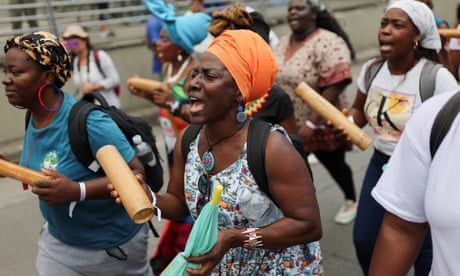
My mother showed me the importance of Indigenous and Afro-descendant women in protecting the natural world. Yet they continue to face barriers and discrimination in their work
I learned about the importance of women in small communities from my mother. She was a peasant woman – a campesina as we say in Colombia – in the mountains near Cali, where I grew up. She searched the forest for food and cultivated the earth to grow vegetables to feed me and my four siblings. It is women like her that I try to empower with my work supporting the collective rights of Indigenous and Afro-descendant women in Asia, Africa and Latin America.
In an era of environmental crises, people from such communities have an outsized role in preventing the destruction of nature and slowing the climate crisis. Colombia, where the biodiversity Cop16 was held last week, is home to 10% of all life on Earth, stretching from thick mangrove forest of the Pacific coast to the Amazon rainforest. Many of the communities I work with live alongside this rich nature and have made its survival part of their culture, something increasingly recognised in conservation. This is true from the Arctic Circle to the Indonesian forest. My job is to make sure women in these places receive practical support and a fair share of growing financial assistance.
Continue reading...